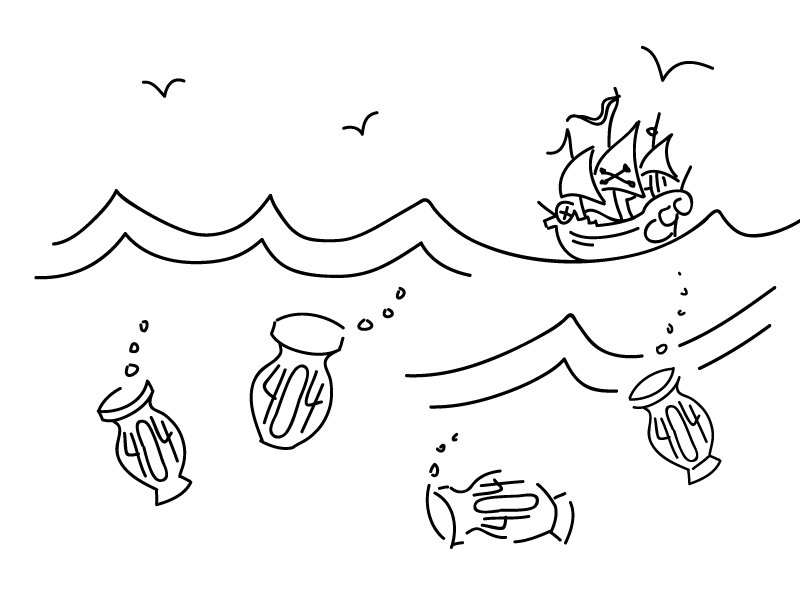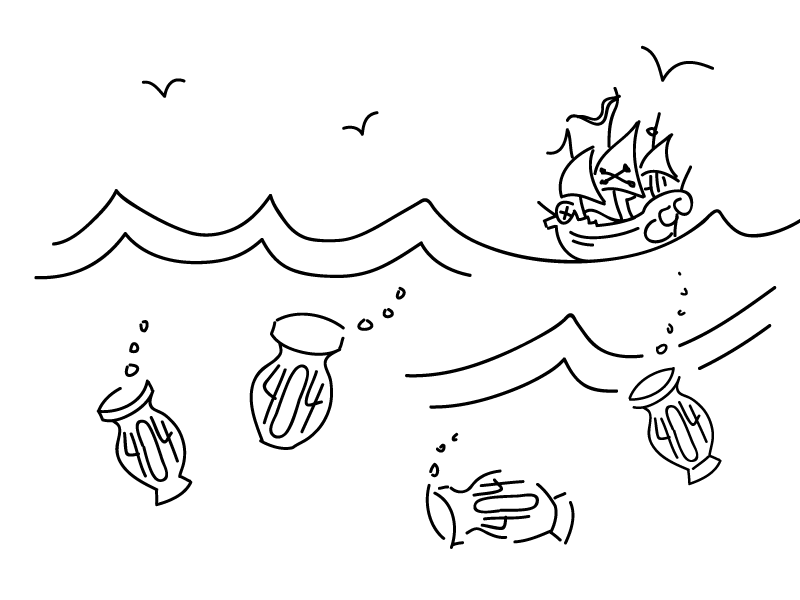Verbatim
At The Baffler, Kate Wagner (of the fantastic McMansion Hell) applies her incisive eye to an aesthetic Marxist history of being extremely online. She takes us from the “hideous-beautiful” Geocities internet, through the “cleanly if ungodly” web 2.0 to the minimal app-based cages we now exist in. She spends her best time, though, on the dank edges, in the shitposts, GIF archives and “weird Facebook” groups that celebrate the bad old-person posts that might have come to define our experience with a platform whose bald spot has been showing for a lot longer than it has realised.
Still, the visual remnants of vaporwave have long outlasted its radical ideological underpinnings. Almost immediately, its pastel, geometric, softcore aesthetics were gobbled up by media platforms, in particular the image-driven platforms Tumblr and Instagram. The pastiche compositions of Arizona Iced Tea cans and old Windows desktops were very quickly made available on all these commercial interfaces, which were not only feeding on a countercultural art movement—they were likewise consuming the ghosts of an internet they had long since murdered. The critique offered by vaporwave—its defiant sense of utopia—was immediately and effectively erased, leaving only a commodified, nostalgic aesthetic. And this aesthetic detritus, its millennial pink, Memphis-esque shapes and squiggles made entirely for Instagram, became cold, devoid of joy and playfulness, something the Consumer Aesthetic Research Institute, an ad hoc, Discord-based volunteer group which runs a popular series of blogs and Facebook pages cataloging various aesthetic tendencies across the 1990s, 2000s, and 2010s, simply calls the “bougie design aesthetic.”

ThingsWe had a number of Marie Kondo thinkpieces lined up to link to, we’d been saving them all week, but, well, none of them sparked joy… Out they go!
(Ok maybe Kyle Chayka’s is good, because we always like him on his minimalism beat.)
But here’s some writing on clothing that sparks actual joy – Hoda Hashi on the shifting politics and symbolism of the Somali dirac, and what clothing can mean to diasporic identity.
“Earth’s magnetic field is acting up and geologists don’t know why.”
Was the great Cuban sonic weapon diplomatic conspiracy thriller really just a bunch of weird crickets? I mean, the evidence is pretty convincing but yeah, well, that’s just like your opinion, man.
Related, at Vulture, Alan Glynn laments the lost golden age of the paranoid conspiracy thriller, once one of the greatest fictional forms of public accounting for society’s woes, but much less fun and useful when conspiracy and paranoia are the lingua franca of everyday politics.
The inner monologue of anyone who’s ever worked at a tech company in the history of time, ever.
“The origin stories of corporate mindfulness initiatives are big on executive heroics. Fresh from weathering a personal crisis, a kind-hearted visionary feels moved to spread the relaxation and focus among her co-workers, unleashing all manner of bottom-line-friendly good vibes.”
Deep thought of the week: “Whereas a meme's humor comes from its repeatability, a shitpost is funny simply because it isn't a predictable repetition of an existing form. Shitposts can become memes, but memes cannot become shitposts.“ —From the second definition of “Shitpost” at urbandictionary.com.
Webinars on the art of Amazon drop-shipping have the vibe of self-helpy multi-level marketing schemes. But there’s no pyramid here, just a few seedy salesmen who’ve found it more lucrative to sell dreams than drop-shipping wine-bottle openers or miniature camping tarps themselves. Amazon turns a blind eye because the cottage industry of drop-shippers ensures the efficiency of their third-party marketplace.
While Amazon hides or at least plays dumb to the real labour responsible for their magical efficiency, Shopify endorses the dream of drop-shipping as entry-level entrepreneurialism, having acquired a drop-shipping marketplace in 2017. As covered by Alexis Madrigal last year, some do drop-ship successfully, and “Shopify serves as the base layer for an emerging ecosystem that solders digital advertising through Facebook onto the world of Asian manufacturers and wholesalers.” That’s the dream! At least Shopify warns that “increase in cutthroat competition will quickly destroy the profit margin in a niche.” Perhaps Shopify just recognizes drop-shipping as a necessary evil, and thinks it’s best for them to control the message—and, incidentally, the market.
On the legalities and bureaucracy of being buried at sea.
“ “I can’t really speak to if it was like a meeting one day where it was like, ‘No more monkey-piss GIFs,’ you know?” At The Ringer, something of a roundtable, celebration and defense of a form we both love and detest – the cathartically savage, scathing review of a thing.
So, uh, last week John tried to put a joke here about us having a Patreon, but broke the link that was meant to be the joke, so it became even more meta and weird. (Was it a shitpost?) But a bunch of you emailed and told us our Patreon link was broken and wanted to give us money! Should we… have a Patreon? A totally no pressure one? Like, it’s sort of important to us that we don’t do this for actual money (and we’ll never ever ever do this via a paid subscription service), but there are some little costs here and there, and some fun little projects we’d love to do alongside, and it seems like some of you actually want to help out? We’re pondering, anyway. Let us know what you think!
Meanwhile, here’s our actual website. Same as it ever was.





